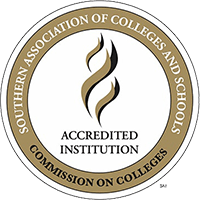Reference Guide: Comparison of ADA in Secondary and Post-Secondary Education
Laws to Know
IDEA
Individuals with Disabilities Education Act. This federal law governs special education services in the K-12 system. This law permits the development of Individualized Education Plans (IEPS) by a team of individuals who serve the interest of the child and will determine the educational process for that particular child. It ensures that the student is afforded the opportunity to be educated appropriately while in school. This is also known as FAPE—Free Appropriate Public Education; it applies to K-12, not to post-secondary education.
Section 504
Section 504 is the section of the Rehabilitation Act of 1973 that “protects individuals from discrimination based on their disability.” A 504 Plan in K-12 is created when certain accommodations are required in the physical classroom or learning environment. However, post-secondary institutions are required to provide “appropriate academic adjustments as necessary to ensure that it does not discriminate on the basis of disability.” In short, in higher education, students will be granted access by eliminating barriers to participation in all aspects of the school, thereby providing equal opportunity to be fully integrated into the mainstream.
ADA
The Americans with Disabilities Act of 1990. It is a federal civil rights law developed to provide equal opportunity for people with disabilities. The ADA “ensures equal access and opportunities, and also protects individuals with disabilities from discrimination.” A disability must substantially limit a major life function. Title III applies to private universities such as Everglades University. Get more info here and here.
Points to Know
An Individual Education Plan (IEP) or 504 Plan reflects education and accommodation history and may be used to determine the reasonableness of certain accommodations; however, not all secondary-school accommodations are applicable in postsecondary or collegiate institutions. Further documentation may be necessary to establish the limitations of the disability on a major life function. The responsibilities of the institution and the student are different between K-12 and postsecondary levels.
Self-Disclosure
Secondary (K-12)
The school is responsible for identifying students with disabilities. This includes assessing, diagnosing and providing services.
Post-Secondary (College or University)
The student is responsible to engage in self-disclosure to institutional officials and follow the institution’s procedures. For receipt of services, follow the policies and procedures located on the EU website: <<hyperlink to main page of EU ADA Page>>
Students desiring to receive accommodations must identify themselves with the University and the Disability Service Coordinator. To request accommodations, students must provide proper documentation to support the need for the requested accommodations. Any updated additional documentation or required testing will be the responsibility of the student to obtain.
Communication
Secondary (K-12)
Part of the student’s 504 Plan may include notification strategies to inform parents of their student’s progress, homework, etc. Parents and school officials are charged with the responsibility for advocating on behalf of the student.
Post-Secondary (College)
A post-secondary institution, by law, cannot contact a parent regarding the student’s performance unless individual students grant the institution permission, in writing, to contact their parents. Parents who want to know about their student’s performance must ask their child directly or acquire their student’s permission for the institution to release such information.
Accommodation Implementation
Secondary (K-12)
The school is responsible to implement and arrange for the student to receive accommodations.
Post-Secondary (College)
Once accommodations are approved through the DSC, the student must request the accommodation in each situation where adjustments are needed or warranted.
Purpose of Accommodation
Secondary (K-12)
Accommodations and services are typically created to maximize the student’s performance and potential for successfully completing the school’s program of study.
Post-Secondary (College)
Accommodations are granted to create equal access by reducing barriers presented by the disability rather than helping the student reach their full potential. ADA grants equal access not equal outcomes.
General Information and Expectations
As with most post-secondary institutions, EU is dedicated to ensure that it grants equal access to its entire student population to participate in the university experience. We encourage students to become self-advocates of their learning needs, including soliciting for accommodations under ADA. Post-secondary institutions’ staff, administration, and faculty will communicate directly with student. They are typically not required to communicate or interact with the student’s parents. Parents wishing to be involved with their student in the addressing of documented disabilities are considered to be partners with EU. By law, parents cannot be the person conducting business on their child’s behalf.
Post-secondary learning environments are designed to develop students into becoming their own advocates, thus it is expected that students should be involved and engaged in all conversations and processes. A FERPA release must be on file in order for University personnel to share student record information or to speak with a parent regarding aspects of their student’s record information. Please be aware that a FERPA form, signed by the student, only allows the release of that student’s record for review. It does not grant the right to conduct business on the student’s behalf. Such releases are not a delegation of authority or power of attorney to the parent. The University does reserve the right to limit a parent’s access to the student on the campus if their presence becomes an impediment to the delivery of educational services or to the care and supervision of the student body.
If you have questions regarding these policies, please reach out to the Vice President of your child’s respective campus or to the Disability Services Coordinator: Jared Bezet at [email protected].


